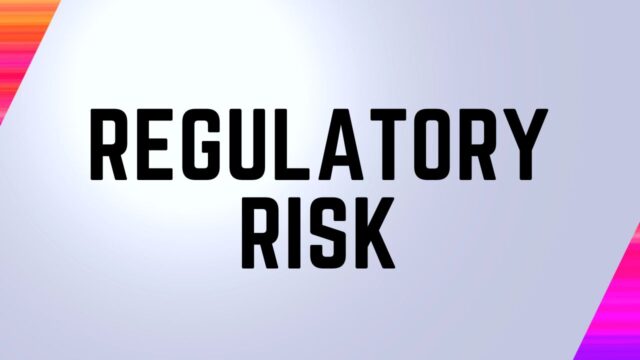
What is Regulatory Risk
Regulatory risk is the possibility that a company will face increased scrutiny from regulators or be subject to new regulations that could adversely affect its business. This type of risk is often heightened in industries that are heavily regulated, such as financial services, healthcare, and energy. While regulatory risk can never be completely eliminated, companies can take steps to mitigate it. This includes maintaining a strong compliance program, keeping up with regulatory changes, and proactively engaging with regulators. By taking these measures, companies can minimize the impact of regulatory risk on their business.
How to Mitigate Regulatory Risk
There are a few ways to mitigate regulatory risk. The first is to have a strong understanding of the current regulatory environment and be aware of any changes that may occur. This can be done by keeping up with industry news and developments, as well as monitoring government websites for updates.
Additionally, it is important to have a good relationship with the relevant regulatory agencies. This can make it easier to obtain information about upcoming changes and ensure that your business is in compliance with any new regulations. Finally, it is helpful to develop contingency plans for how your business would respond to different regulatory scenarios. By taking these steps, you can reduce the impact of regulatory risk on your business.
The Dangers of Regulatory Risk
Regulatory risk is the possibility of financial losses resulting from changes in government regulations. Investing in companies that are subject to strict regulation can be risky, as changes in the regulatory environment can have a major impact on their bottom line. For example, a company that is heavily regulated by the government may be at risk of losing its license to operate if regulations change. This could lead to a loss of revenue and profit, and potentially even bankruptcy. Regulatory risk is therefore an important factor to consider when investing in companies. While there may be potential rewards, investors need to be aware of the risks involved.
Why Compliance is Important
Regulatory risk is the chance that a company will face fines or other penalties for violating laws or regulations. Regulatory risk is often highest for companies in industries that are closely regulated, such as banking, healthcare, and energy. In recent years, the number of regulatory agencies has increased, and the penalties for non-compliance have become more severe. As a result, compliance has become an essential part of doing business.
Companies must have systems and procedures in place to ensure that they are complying with all applicable laws and regulations. Failing to do so can put a company at risk of significant financial penalties. In some cases, companies may even be required to suspend operations until they can demonstrate compliance. For these reasons, compliance is an essential part of running a successful business.
The Costs of Non-Compliance
Regulatory risk can also be caused by the actions of employees, who may not be aware of the regulations or may deliberately choose to ignore them. The costs of regulatory non-compliance can be significant, including financial penalties, damage to reputation, and legal liabilities. In some cases, regulatory non-compliance can also lead to criminal charges. As a result, it is important for companies to have systems in place to ensure compliance with all relevant laws and regulations.
The Truth About Regulatory Risk
Regulatory risk is the risk that a company will be fined or otherwise penalized for violating government regulations. This type of risk is often difficult to predict, as it can depend on factors such as changes in the political climate or the enforcement of existing regulations. It can also be difficult to manage, as companies may need to invest significant resources in compliance measures. Despite these challenges, regulatory risk is an important factor to consider when doing business in any industry. By understanding the potential risks and taking steps to mitigate them, businesses can minimize the impact of regulatory fines and other penalties.

































